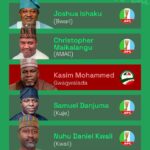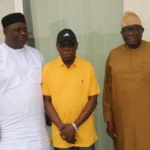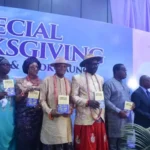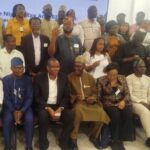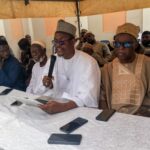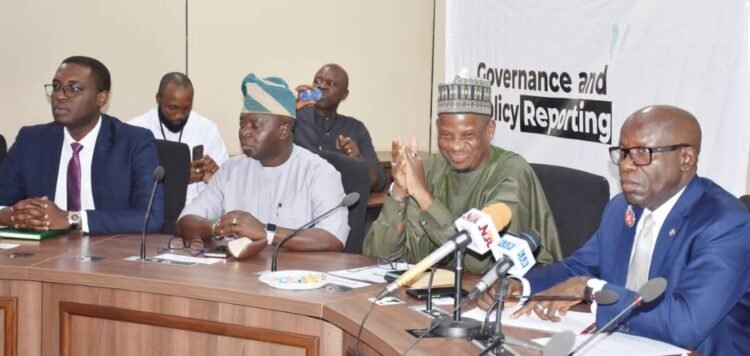By Chijioke Okoronkwo
Mr Ali Muhammad Ali, Managing Director, News Agency of Nigeria (NAN), says the media must spearhead the tracking of the country’s budgetary process to ensure that Nigerians get the actual value allocated in fiscal proposals.
Ali made this submission on Wednesday in his goodwill message at the opening of a 2-day capacity building for journalists, orgainsed by the Nigeria Governors’ Forum (NGF) in collaboration with the Premium Times Academy in Abuja.
The event is tagged “Training on Governance and Policy Reporting.’’
According to Ali, the media has a critical role to play in promoting accountability and transparency in the conduct of government business.
He said the role of the mass media was so crucial that the Nigerian Constitution made a provision for its preservation.
“To ordinary Nigerians who today listen to the radio, watch the television, read the newspapers and of course surf the information superhighway, they are interfacing with various manifestations of the mass media in their daily lives.
“So impactful is the influence of the mass media in our daily lives that the Nigerian constitution makes specific provisions to protect and preserve this institution which the British statesman, Edmund Burke, had described in 1787 as the Fourth Estate of the Realm.
“Section 22 of the constitution states that ‘The press, radio, television and other agencies of the mass media shall at all times be free to uphold the fundamental objectives contained in this chapter and uphold the responsibility and accountability of the government to the people.’”
Ali said it was instructive to note that apart from the media, no other institution in Nigeria had been vested with the onerous constitutional watchdog responsibility of making government accountable to the people.
He said the framers of the constitution were interested in deepening the crucial role of mass media in promoting Nigeria’s pluralist democracy, good governance and ensuring that the government upheld the objectives contained in the directive principles of state policy.
“Of critical importance is the provision which talks about ensuring that ‘the material resources of the nation are harnessed and distributed as best as possible to serve the common good.’’’
According to Ali, it is clear from the provisions that the media has a role to play in promoting the economic well-being of Nigeria and its diverse people through good governance and adequate reportage of public policies.
“If there is agreement on this, how then can the media help in promoting good governance and by extension mitigate the current economic challenges in the country?’’
He said that one such means was by focusing on development journalism which highlighted the human condition and sought measures to uplift standard of living through monitoring certain defined indicators.
“Development journalism seeks to create awareness about socio-economic issues and the development initiatives to tackle them.
“The media also has an important role to play in promoting accountability and transparency in the conduct of government business.
“In this light, the media must remain in the vanguard of tracking the budgetary process to ensure that the Nigerian people get the actual value allocated in fiscal proposals,” he said.
Earlier, in his welcome address, Dapo Olorunyomi, Publisher, Premium Times, said the stakeholders believed that journalists should serve as watchdogs to ensure honest and productive governance, while focusing their coverage on issues vital to advancing citizens and society.
Represented by Muskiliu Mojeed, Chief Operating Officer, Premium Times Group, Olorunyomi, said that the training was designed to help journalists with the skills needed to cover public policies, governance and democratic process in Nigeria which is Africa’s largest democracy.
“We believe that governance and policy reporting should be informed by a more profound knowledge and skill level of how governments work and how public policy decisions are taken.
“At the end of this training, we expect participants to develop deeper insights and understanding of the Nigerian system and how to deepen accountability in governance,” he said.
While declaring open the training, Asishana Okauru, Director-General, NGF, said that journalists played a vital role in crafting and shaping policies.
He said that journalists could potentially derail a well thought policy, as a result of poor messaging.
“It is therefore extremely important that we work together to better understand the policy value chain.
“For me, it will appear that in our environment, the implementation segment has been the weakest part of the entire policy value chain; this calls for patience and understanding,” he said.
Participants at the training were drawn from various media outfits in the country. (NAN)(www.nannews.ng)
========
Edited by Emmanuel Afonne


